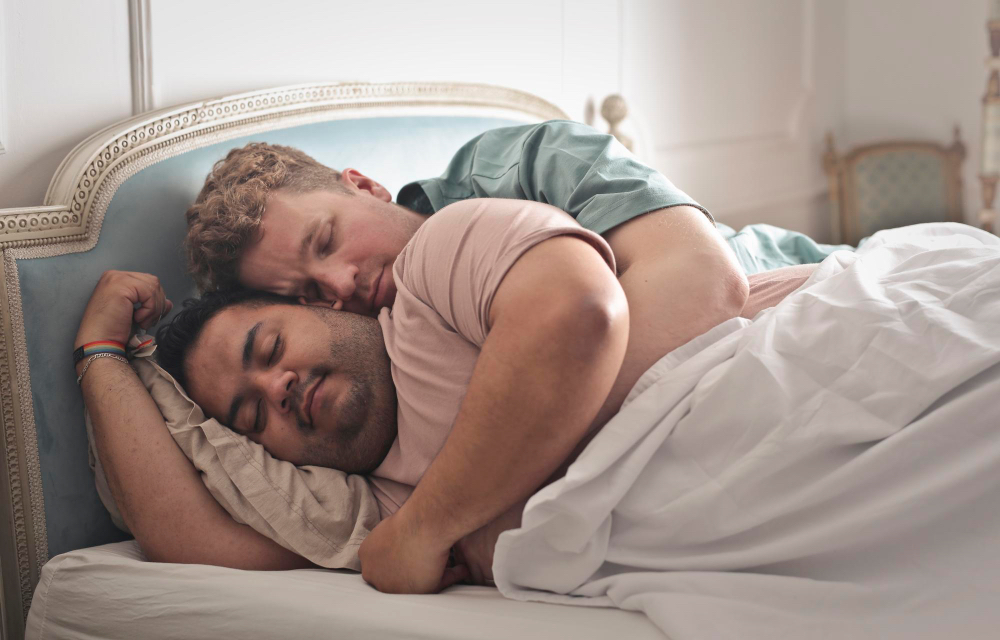Effective Communication in LGBTQ+ Relationships
Communication is the cornerstone of any healthy relationship, and this holds especially true for LGBTQ+ partnerships. In this blog post, we will explore the significance of effective communication and provide actionable tips to enhance communication skills within LGBTQ+ relationships.

Communication is key to any successful relationship, but for LGBTQ+ couples, the stakes can be even higher. Navigating societal pressures, dealing with internalized stigma, and addressing unique challenges make open and honest communication essential for fostering strong and supportive partnerships.
When I reflect on my own experiences and the stories of the many couples I’ve worked with, I’m reminded of how crucial communication is in building and maintaining healthy relationships. In my practice, I’ve seen firsthand how effective communication can transform relationships, turning conflict into connection and misunderstandings into mutual understanding.
Effective communication is about more than just talking; it’s about listening, understanding, and being understood. It involves expressing thoughts and feelings clearly and respectfully, as well as being receptive to your partner’s perspective. According to a study by the American Psychological Association, couples who engage in positive communication are more likely to experience satisfaction and stability in their relationships. This is particularly important for LGBTQ+ individuals, who may face unique stressors related to their sexual orientation or gender identity.
However, many LGBTQ+ couples face common challenges that can hinder effective communication. These can include fear of rejection, past trauma, and societal discrimination. For instance, some individuals may struggle with internalized homophobia or transphobia, which can create barriers to open and honest dialogue. Others might have had negative experiences in past relationships, leading to a lack of trust and difficulty in expressing vulnerability.
To overcome these challenges, it’s important to develop practical strategies for improving communication. One effective approach is to practice active listening. This means fully concentrating on what your partner(s) is saying without interrupting or planning your response. By showing empathy and validating their feelings, you can create a safe space for open dialogue. Additionally, using “I” statements can help express your thoughts and feelings without sounding accusatory. For example, instead of saying, “You never listen to me,” try saying, “I feel unheard when we don’t have a chance to talk things through.”
Another strategy is to establish regular check-ins with your partner(s). This can be a dedicated time each week to discuss your feelings, address any concerns, and celebrate your successes. These check-ins can help prevent small issues from escalating and ensure that all partners feel heard and valued. Additionally, learning to manage stress and practicing self-care can improve your ability to communicate effectively. When you’re feeling overwhelmed or stressed, it’s harder to engage in constructive conversations. Taking time to relax and recharge can enhance your emotional resilience and communication skills.
In my practice, I emphasize the importance of building trust and creating a safe environment for communication. This involves setting clear boundaries, being honest and transparent, and showing respect for each other’s experiences and identities. I also incorporate techniques from Cognitive Behavioral Therapy (CBT) and Dialectical Behavior Therapy (DBT) to help couples reframe negative thoughts and develop healthier communication patterns.
For example, one couple I worked with struggled with constant arguments and misunderstandings. Through therapy, they learned to recognize their triggers and implement strategies for de-escalation. They practiced active listening, used “I” statements, and scheduled regular check-ins. Over time, they built a stronger foundation of trust and mutual respect, transforming their communication and their relationship.
Effective communication is vital for maintaining healthy and fulfilling LGBTQ+ relationships. By practicing active listening, using “I” statements, and establishing regular check-ins, couples can overcome common challenges and build stronger connections. If you’re struggling with communication in your relationship, consider booking a free consultation with me. Together, we can develop personalized strategies to help you achieve your relationship goals and enhance your communication skills.



